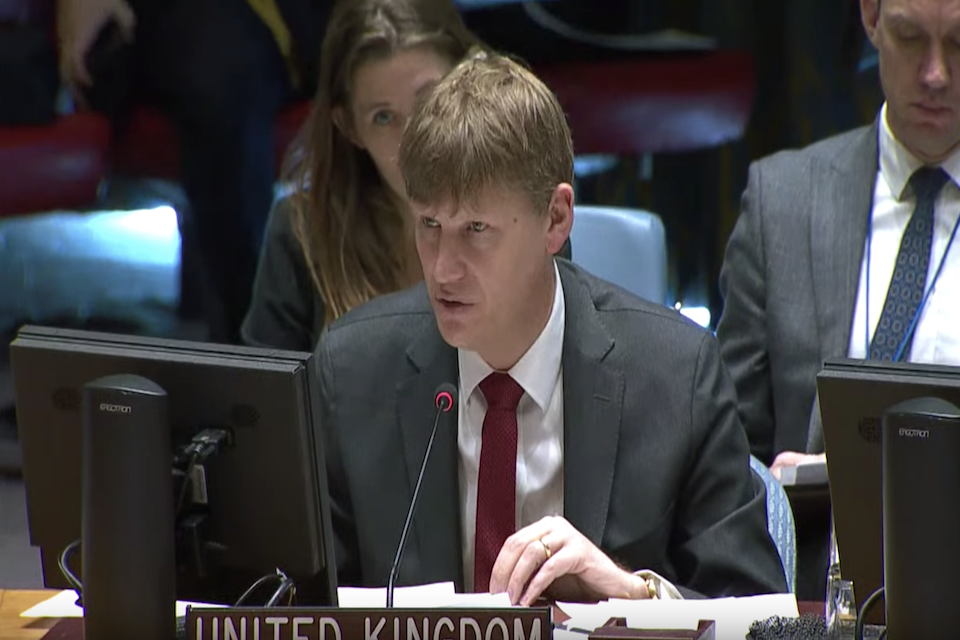Concern for the increased tensions and fragility in Libya
Statement by Ambassador Jonathan Allen, Deputy Permanent Representative to the UN, at the Security Council briefing on Libya

I want to start by thanking SRSG Salamé for his briefing and for UNSMIL’s continued efforts to broker an end to the conflict in Libya. And I just want to assure SRSG Salamé of the United Kingdom’s full and unwavering support and appreciation for his untiring efforts in this regard.
Let me also thank Germany for hosting the Berlin Conference and for all their efforts to bring international leaders together in order to create the right environment for a ceasefire and a resumption of the political process.
Mr President, let me start with Berlin. We particularly welcome the Conclusions document agreed in Berlin, which includes a commitment by all not to interfere in the conflict or in the internal affairs of Libya. It is essential that these commitments are adhered to. It is only eleven days since Berlin, but it is clear from SRSG Salame’s briefing that the Libyan people are in grave peril and that the situation has become more fragile and more dangerous. Libya stands on the brink of disaster, and we are gravely concerned by reports of breaches of the arms embargo in recent days. Member states have obligations to abide by the arms embargo imposed by this council.
Mr President, we are also deeply concerned by reports of increased fighting over recent days. This underlines the urgency of the UNSMIL-convened 5+5 Joint Military Commission meeting to agree a permanent ceasefire. It is essential that both sides commit to participating in these talks without delay.
We also support UNSMIL’s work to convene the Political Forum, and to establish the Libyan Expert Economic Commission. Both initiatives will provide opportunities to address the political and economic questions which lie at the core of this conflict.
We condemn the blockading of oil terminals in the east of Libya, which has led to the declaration of Force Majeure by the National Oil Corporation. The consequent loss of oil revenue will only lead to the further suffering of Libyans.
Mr President, the Secretary-General’s report underlines the worsening human rights situation in Libya. And let me at this point echo SRSG Salamé’s call for clarity on the whereabouts of Siham Sergiwa. It is particularly distressing, Mr President, that there have been at least 50 attacks on healthcare facilities, healthcare workers and ambulances since April last year. All parties to the conflict must comply with their obligations under international law, including international humanitarian law.
Mr President, the Berlin Conference was a vital step in bringing together key international players. They agreed to support the UN-led political process and they pledged to respect the UN arms embargo. However, as SRSG Salamé has just highlighted, the situation on the ground is extremely worrying. The risks in Libya are high. It is vital that the international community and this Council show unity and put momentum in support of UNSMIL and the UN-led political process. There is no alternative solution. We should send a clear message.
Thank you, Mr President.